Difference between revisions of "Tyre marks on leather"
| (One intermediate revision by one user not shown) | |||
| Line 9: | Line 9: | ||
| − | Tyre imprints on [[car leather|vehicle leather]] are a common phenomenon in regions of winter snow. When changing from winter to summer tyres or when such a car is on sale, the older tyres are sometimes rested on the back-seats. In the case of [[leather colour|bright]] leathers, tyre prints can occur quickly. The lettering and the profile are clearly recognisable as brownish - blackish discolouration. Sometimes only a few hours of contact are enough, and the marks occur even when plastic bags are used for protection. The oils contained in the tyres migrate into the [[finish|colour layer]] of the leather and cause a stain. | + | Tyre imprints on [[car leather|vehicle leather]] are a common phenomenon in regions of winter snow. When changing from winter to summer tyres or when such a car is on sale, the older tyres are sometimes rested on the back-seats. In the case of [[leather colour|bright]] leathers, tyre prints can occur quickly. The lettering and the profile are clearly recognisable as brownish - blackish discolouration. Sometimes only a few hours of contact are enough, and the marks occur even when plastic bags are used for protection. The oils contained in the tyres migrate into the [[finish|colour layer]] of the leather and cause a stain. Higher temperatures in the vehicle accelerate the process. |
| Line 29: | Line 29: | ||
[[bild:reifen2.jpg|500px]] | [[bild:reifen2.jpg|500px]] | ||
</p> | </p> | ||
| + | <p align=center> | ||
| + | [[bild:reifen7.jpg|250px]] | ||
| + | [[bild:reifen8.jpg|250px]] | ||
| + | </p> | ||
| + | <p align=center> | ||
| + | [[bild:Reifenabdruck_Autoleder_01.jpg|500px]] | ||
| + | </p> | ||
| + | <p align=center> | ||
| + | ''Tire marks on car leather in many variations.'' </p> | ||
| + | |||
| + | |||
| + | <p align=center> | ||
| + | [[bild:Tire imprint artificial leather vintage car.jpg|500px]] | ||
| + | </p> | ||
| + | <p align=center> | ||
| + | ''Imitation leather is not spared from this phenomenon either.'' </p> | ||
| Line 38: | Line 54: | ||
<p align=center> | <p align=center> | ||
''The use of COLOURLOCK Blocker in cases of [[Leather damages#Dye transfer on leather|dye transfer on leather]], [[colour migration]], tyre marks, [[Adhesive migration – Glue migration#Repairing adhesive migration by colouring in the leather workshop|adhesive migration]], [[Moldy leather - Mouldy leather#Black mould in leather|black mould]] etc. in leather.'' </p> | ''The use of COLOURLOCK Blocker in cases of [[Leather damages#Dye transfer on leather|dye transfer on leather]], [[colour migration]], tyre marks, [[Adhesive migration – Glue migration#Repairing adhesive migration by colouring in the leather workshop|adhesive migration]], [[Moldy leather - Mouldy leather#Black mould in leather|black mould]] etc. in leather.'' </p> | ||
| − | |||
| − | |||
| − | |||
| − | |||
| − | |||
| − | |||
| − | |||
| − | |||
| − | |||
| − | |||
| − | |||
Latest revision as of 07:51, 8 June 2023
Tyre imprints on vehicle leather are a common phenomenon in regions of winter snow. When changing from winter to summer tyres or when such a car is on sale, the older tyres are sometimes rested on the back-seats. In the case of bright leathers, tyre prints can occur quickly. The lettering and the profile are clearly recognisable as brownish - blackish discolouration. Sometimes only a few hours of contact are enough, and the marks occur even when plastic bags are used for protection. The oils contained in the tyres migrate into the colour layer of the leather and cause a stain. Higher temperatures in the vehicle accelerate the process.
Tyre marks or discolourations are as easy to remove as tattoos from the skin. Dye from the tyres deeply penetrates the leather and cannot be removed by normal cleaning methods or products. These marks cannot be coloured over either. Just as the imprint is absorbed into the leather, it also moves back to the surface again through the colour and, after a few days, the marks become visible again.
Tire marks on car leather in many variations.
Imitation leather is not spared from this phenomenon either.
There are only two ways to solve such a problem: the colour repair by a specialist or having the seats re-trimmed with new leather. The work of a specialist is not cheap, since the oily dye stuffs from the tyres pass through colouration so easily, the paint layer must first be removed by a time-intensive process and remaining residues must be absorbed with special products. Then the colour can be applied again after a blocker-treatment. Therefore, the price for renewing leather should be checked first. Only when the repair price is competitive, the repair can be considered as an alternative.
The use of COLOURLOCK Blocker in cases of dye transfer on leather, colour migration, tyre marks, adhesive migration, black mould etc. in leather.
Additional information
![]() -> COLOURLOCK - CLEANING AND CARE OF CAR LEATHER
-> COLOURLOCK - CLEANING AND CARE OF CAR LEATHER
![]() -> In German: www.lederzentrum.de
-> In German: www.lederzentrum.de
![]() -> Rest of the world: partners worldwide
-> Rest of the world: partners worldwide







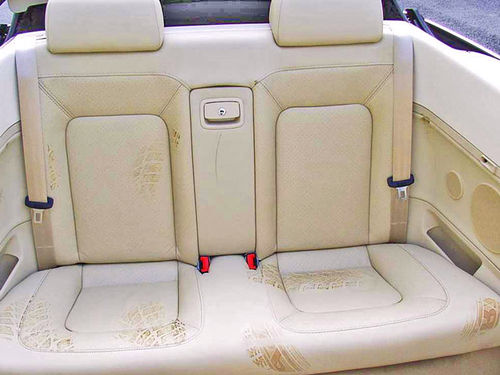
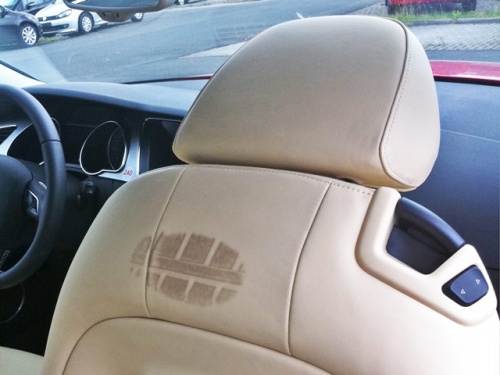
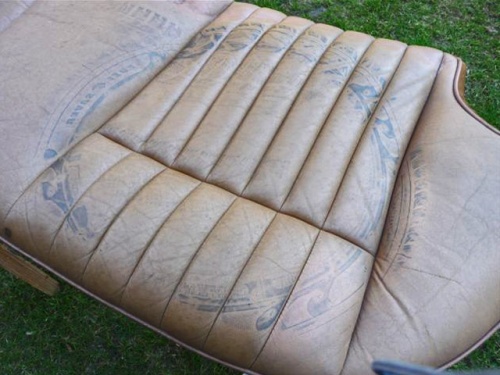

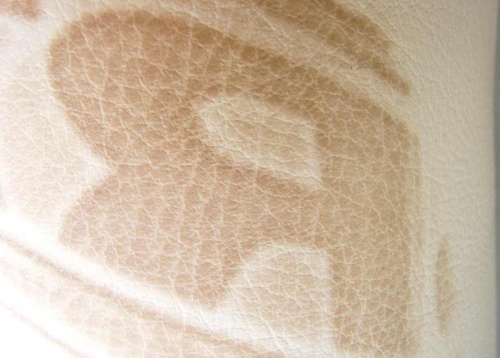


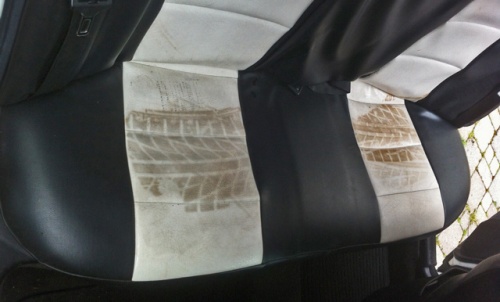


 a kotori web solution
a kotori web solution